The ongoing debacle around the Protected Geographical Indication (PGI) application for Irish grass-fed beef to the EU is yet another example of why farmers need to lead from the front in shaping major initiatives within our industry.
On this occasion, failure to do so means that a unique opportunity for farmers to regain some control over the beef market risks being lost. It is clear from the draft application being proposed by the Department of Agriculture for submissing to the EU that the case for a PGI is built around the work of farmers. It is farmers who own the grass-based production model that delivers the unique taste and health attributes associated with Irish beef.
In contrast, there is little evidence in the application to indicate that the processing sector brings anything new to the party – simply adopting processing technologies that are now widely practised across the industry.
Having full control and ownership of the production model that creates the unique product offering should have allowed farmers not only lead the development of a PGI but also retain full ownership of it.
Owning the PGI would give farmers the opportunity for more meaningful participation in the marketplace, better control over how their product is marketed and ensure that any premium was reflected in the farmgate price.
Over time, increased consumer awareness as to the unique attributes of Irish grass-fed beef and the protection afforded by the PGI could allow farmers engage directly with retailers and premium food-service outlets. Unfortunately, under the proposed PGI model, farmers find themselves in a very different position.
Instead of retaining ownership and power, the current PGI application gives the power and control to those further up the supply chain – even though they bring little in the way of added value or uniqueness to the product.
It is little wonder that farm organisations are currently venting their anger in relation to many aspects of the PGI application
The result is that the introduction of a PGI in its current form could in fact be detrimental to farmers. The risk that it could see a further gold-plating of beef production standards at farm level without delivering any financial dividend for farmers is very real and its introduction could also act as a barrier to live trade.
Meanwhile, the verification process for determining meat and fat colour, as outlined in the application, effectively sees farmers returning to a situation where the value of their animal is determined by a highly subjective manual grading system.
It is therefore little wonder that farm organisations are currently venting their anger in relation to many aspects of the PGI application. It is understandable given the extent to which farmers have lost control and ownership of an initiative that is based on the uniqueness of their farm production model.
As the lead architects, the Department of Agriculture and Bord Bia are again feeling the heat. But is focusing the blame in this direction justified? Yes, in the sense that they have not managed to secure farmer buy-in to what should be a positive development for the sector. Clearly the expertise that producers would have brought to the proposal was not fully appreciated.
However, it is also worth asking if farm organisations, by not leading from the front in the development of a PGI, created the vacuum that allowed others take control.
Through representation on the board of Bord Bia and participation in the various stakeholder groups, they would have been aware – as far back as early 2019 – that Bord Bia was engaged in the development of a PGI application.
Surely it was not beyond the capacity or scope of farm organisations to come together and lead the application for a farmer-owned PGI with the Department and Bord Bia providing support.
But rather than blame, attention now needs to focus on how we reposition farmers at the centre of the final PGI application. The opportunity still exists to achieve this. The publication of the draft application affords all stakeholders the chance to highlight issues and concerns, and provide insights prior to the final application being submitted to the EU.
It is critical that farm organisations use this platform to ensure that in both its construct and scope, the final application is designed in a way that delivers maximum control and benefit to farmers.
If this can be achieved, securing an overarching PGI for Irish grass-fed beef that allows for the development of further niche brands will be a positive step forward.
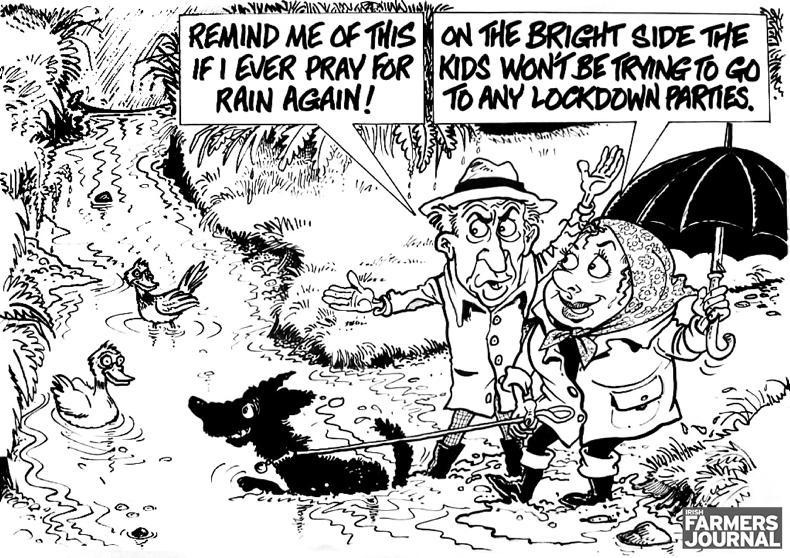
\ Jim Cogan
Forestry: licensing delays must be resolved with legislation
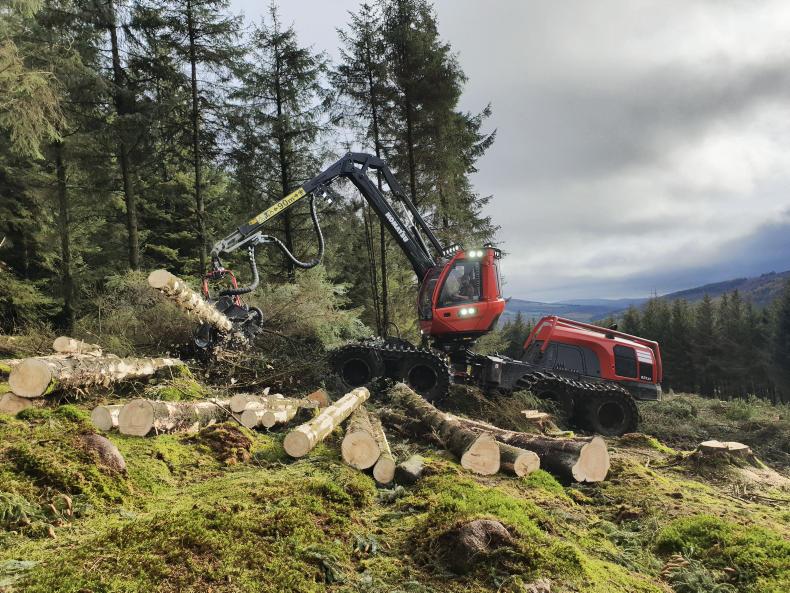
The lack of licences has resulted in the lowest afforestation programme since the 1940s.
The main barriers to forestry development in Ireland are due to a lack of licence approvals rather than any COVID-19 restrictions. The lack of licences has resulted in the lowest afforestation programme since the 1940s.
In addition, serial appeals against licences for felling and forest roads are threatening the supply of sawn timber for housing and the possible closure of sawmills and job losses.
The construction market will undoubtedly be filled by timber imports unless contractors are allowed to supply sawmills with sufficient timber.
Licences for planting, roads and tree felling approved and granted in the past by forest service inspectors are now subject to appeal. The Forestry Appeals Committee (FAC), established in 2017, adjudicates on these appeals at a rate of 20 per month. However, the FAC is overwhelmed, as Donal Magner reports. At current levels of appeals – running at 50 per month – the backlog could take three years to clear.
At a time when Ireland faces a major recession, the forestry and forest products sectors can deliver sustainable economic growth and jobs but are denied this due to lack of licences.
While the FAC needs support and greater resources, this will not solve the problem. It is time for Government to introduce temporary emergency legislation to allow the approval of licences for afforestation, felling and road construction. A temporary change would allow appropriately assessed licences to proceed.
This temporary legislation can be removed at the discretion of the Government. By then, the draft bill to align the forestry licensing and appeals system with other similar planning processes should be enacted to bring some sense to a licensing system that is causing undue hardship to forest owners – mainly farmers – and those working in downstream industries.
COVID-19: limitations of testing exposed

Once-a-week blanket testing has been proposed for food processing workers.
Irish meat and – to a lesser extent – dairy processors have attracted some unfair criticism recently over their efforts to manage the coronavirus pandemic on their premises.
Preventing the spread of the virus is proving impossible even in some of the most hygienic and controlled environments – and we now know that there are a number of factors within the food processing sector that add a further layer of complexity in preventing the spread of the virus.
In response, the Government launched a testing programme that would see once-a-week blanket testing carried out of over 30,000 workers in the food processing sector.
However, as Hannah Quinn-Mulligan reports, the ambition far exceeds the capacity of the HSE to deliver. Already, the HSE appears to be struggling to deliver the service to workers within the three lockdown counties. Ahead of a move to roll the testing out nationally, it is deeply concerning that some workers have already be waiting over 10 days for results.
Clearly it would not be credible for the Government to proceed with a national testing programme until the HSE has the infrastructure in place that can guarantee a quick turnaround time and an appropriate communication system.
Doing so has the potential to cause huge disruption in the food processing sector with serious knock-on effects for farmers.
Dairy: ICBF making genomic changes to EBI
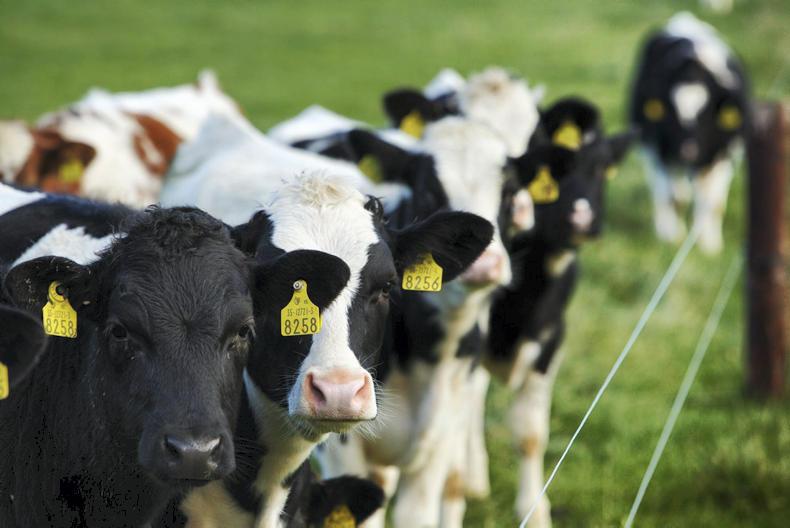
As Aidan Brennan reports, the ICBF has announced it is reducing the level of genomics it will use when formulating an animal’s EBI. While it will be frustrating for farmers to see the EBI of some of the widely used bulls drop, on the whole it is a positive step by ICBF.
Continuing with the current system whereby genomics over-inflates fertility figures would not serve Irish farmers well. The importance of fertility for the Irish dairy herd cannot be overemphasised, both from a profitability perspective but also from a greenhouse gas emissions point of view. We need to see real genetic gain in this area.
The ongoing debacle around the Protected Geographical Indication (PGI) application for Irish grass-fed beef to the EU is yet another example of why farmers need to lead from the front in shaping major initiatives within our industry.
On this occasion, failure to do so means that a unique opportunity for farmers to regain some control over the beef market risks being lost. It is clear from the draft application being proposed by the Department of Agriculture for submissing to the EU that the case for a PGI is built around the work of farmers. It is farmers who own the grass-based production model that delivers the unique taste and health attributes associated with Irish beef.
In contrast, there is little evidence in the application to indicate that the processing sector brings anything new to the party – simply adopting processing technologies that are now widely practised across the industry.
Having full control and ownership of the production model that creates the unique product offering should have allowed farmers not only lead the development of a PGI but also retain full ownership of it.
Owning the PGI would give farmers the opportunity for more meaningful participation in the marketplace, better control over how their product is marketed and ensure that any premium was reflected in the farmgate price.
Over time, increased consumer awareness as to the unique attributes of Irish grass-fed beef and the protection afforded by the PGI could allow farmers engage directly with retailers and premium food-service outlets. Unfortunately, under the proposed PGI model, farmers find themselves in a very different position.
Instead of retaining ownership and power, the current PGI application gives the power and control to those further up the supply chain – even though they bring little in the way of added value or uniqueness to the product.
It is little wonder that farm organisations are currently venting their anger in relation to many aspects of the PGI application
The result is that the introduction of a PGI in its current form could in fact be detrimental to farmers. The risk that it could see a further gold-plating of beef production standards at farm level without delivering any financial dividend for farmers is very real and its introduction could also act as a barrier to live trade.
Meanwhile, the verification process for determining meat and fat colour, as outlined in the application, effectively sees farmers returning to a situation where the value of their animal is determined by a highly subjective manual grading system.
It is therefore little wonder that farm organisations are currently venting their anger in relation to many aspects of the PGI application. It is understandable given the extent to which farmers have lost control and ownership of an initiative that is based on the uniqueness of their farm production model.
As the lead architects, the Department of Agriculture and Bord Bia are again feeling the heat. But is focusing the blame in this direction justified? Yes, in the sense that they have not managed to secure farmer buy-in to what should be a positive development for the sector. Clearly the expertise that producers would have brought to the proposal was not fully appreciated.
However, it is also worth asking if farm organisations, by not leading from the front in the development of a PGI, created the vacuum that allowed others take control.
Through representation on the board of Bord Bia and participation in the various stakeholder groups, they would have been aware – as far back as early 2019 – that Bord Bia was engaged in the development of a PGI application.
Surely it was not beyond the capacity or scope of farm organisations to come together and lead the application for a farmer-owned PGI with the Department and Bord Bia providing support.
But rather than blame, attention now needs to focus on how we reposition farmers at the centre of the final PGI application. The opportunity still exists to achieve this. The publication of the draft application affords all stakeholders the chance to highlight issues and concerns, and provide insights prior to the final application being submitted to the EU.
It is critical that farm organisations use this platform to ensure that in both its construct and scope, the final application is designed in a way that delivers maximum control and benefit to farmers.
If this can be achieved, securing an overarching PGI for Irish grass-fed beef that allows for the development of further niche brands will be a positive step forward.

\ Jim Cogan
Forestry: licensing delays must be resolved with legislation

The lack of licences has resulted in the lowest afforestation programme since the 1940s.
The main barriers to forestry development in Ireland are due to a lack of licence approvals rather than any COVID-19 restrictions. The lack of licences has resulted in the lowest afforestation programme since the 1940s.
In addition, serial appeals against licences for felling and forest roads are threatening the supply of sawn timber for housing and the possible closure of sawmills and job losses.
The construction market will undoubtedly be filled by timber imports unless contractors are allowed to supply sawmills with sufficient timber.
Licences for planting, roads and tree felling approved and granted in the past by forest service inspectors are now subject to appeal. The Forestry Appeals Committee (FAC), established in 2017, adjudicates on these appeals at a rate of 20 per month. However, the FAC is overwhelmed, as Donal Magner reports. At current levels of appeals – running at 50 per month – the backlog could take three years to clear.
At a time when Ireland faces a major recession, the forestry and forest products sectors can deliver sustainable economic growth and jobs but are denied this due to lack of licences.
While the FAC needs support and greater resources, this will not solve the problem. It is time for Government to introduce temporary emergency legislation to allow the approval of licences for afforestation, felling and road construction. A temporary change would allow appropriately assessed licences to proceed.
This temporary legislation can be removed at the discretion of the Government. By then, the draft bill to align the forestry licensing and appeals system with other similar planning processes should be enacted to bring some sense to a licensing system that is causing undue hardship to forest owners – mainly farmers – and those working in downstream industries.
COVID-19: limitations of testing exposed

Once-a-week blanket testing has been proposed for food processing workers.
Irish meat and – to a lesser extent – dairy processors have attracted some unfair criticism recently over their efforts to manage the coronavirus pandemic on their premises.
Preventing the spread of the virus is proving impossible even in some of the most hygienic and controlled environments – and we now know that there are a number of factors within the food processing sector that add a further layer of complexity in preventing the spread of the virus.
In response, the Government launched a testing programme that would see once-a-week blanket testing carried out of over 30,000 workers in the food processing sector.
However, as Hannah Quinn-Mulligan reports, the ambition far exceeds the capacity of the HSE to deliver. Already, the HSE appears to be struggling to deliver the service to workers within the three lockdown counties. Ahead of a move to roll the testing out nationally, it is deeply concerning that some workers have already be waiting over 10 days for results.
Clearly it would not be credible for the Government to proceed with a national testing programme until the HSE has the infrastructure in place that can guarantee a quick turnaround time and an appropriate communication system.
Doing so has the potential to cause huge disruption in the food processing sector with serious knock-on effects for farmers.
Dairy: ICBF making genomic changes to EBI

As Aidan Brennan reports, the ICBF has announced it is reducing the level of genomics it will use when formulating an animal’s EBI. While it will be frustrating for farmers to see the EBI of some of the widely used bulls drop, on the whole it is a positive step by ICBF.
Continuing with the current system whereby genomics over-inflates fertility figures would not serve Irish farmers well. The importance of fertility for the Irish dairy herd cannot be overemphasised, both from a profitability perspective but also from a greenhouse gas emissions point of view. We need to see real genetic gain in this area.








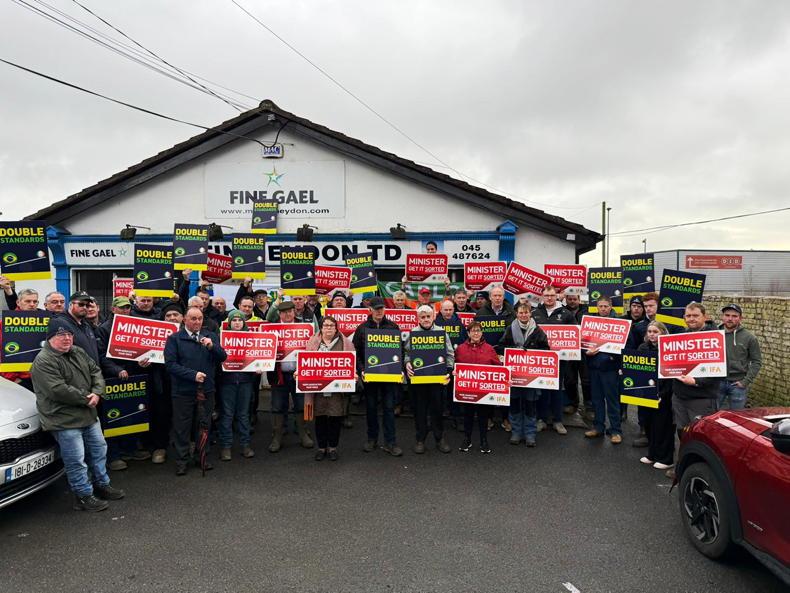

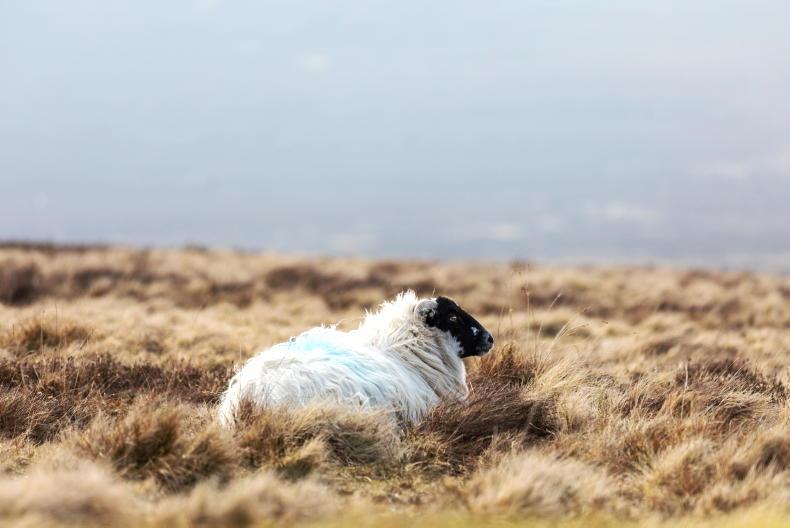
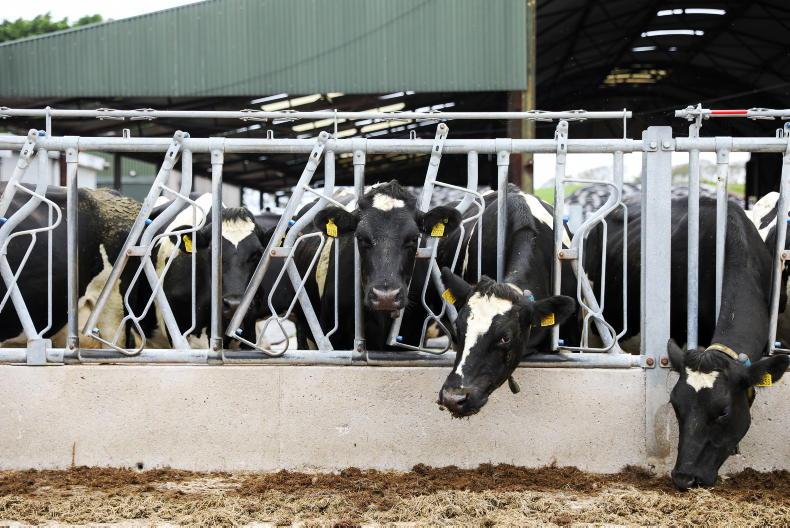
SHARING OPTIONS